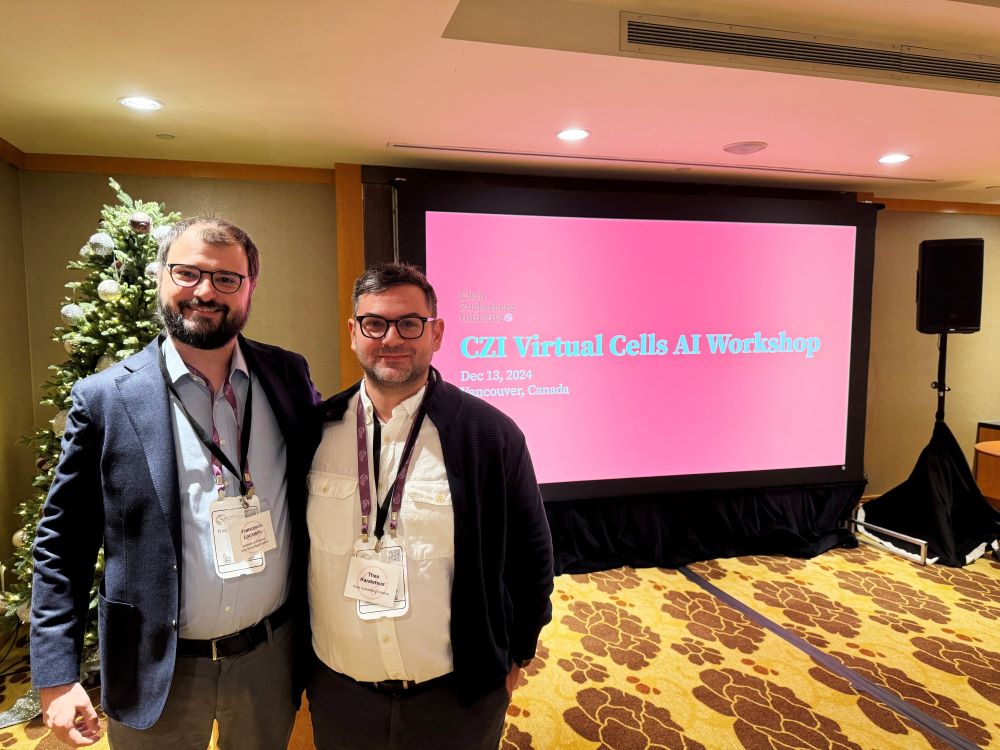December 16, 2024
AI Residency for Francesco Locatello
ISTA Assistant Professor partners with Chan Zuckerberg Initiative as AI Resident
Francesco Locatello, Assistant Professor at the Institute of Science and Technology Austria (ISTA), is one of three international researchers selected to partner with the Chan Zuckerberg Initiative (CZI) in the frame of its AI Residency Program. CZI will support Locatello’s research over two years to build virtual cell models that can accelerate scientific discovery and progress in biology.

The Institute of Science and Technology Austria (ISTA) and the Chan Zuckerberg Initiative (CZI) have entered into a collaboration to drive research in virtual cells as models for human health and disease. Through this initiative, ISTA joins a prestigious network of CZI collaborators, with ISTA Assistant Professor Francesco Locatello as part of the CZI ‘AI Residency’ Program.
This collaboration, which focuses on state-of-the-art artificial intelligence (AI), aims to accelerate biological research. Locatello’s research on causal learning and AI will add to CZI’s AI-powered virtual cell models, which will help scientists understand the molecular underpinnings of human health and disease. To this end, Locatello will join forces with Theofanis Karaletsos, Head of Artificial Intelligence for Science at CZI, to tackle how to make robust scientific statements based on large-scale AI.
Understanding why a specific action leads to a distinct outcome
Locatello established his research group at ISTA in the Fall of 2023. His work focuses on advancing AI models to understand cause-and-effect relationships in large data sets. “We are particularly fascinated by AI systems that can comprehend the causal links between events,” he says. “Understanding why a specific action leads to a distinct outcome is of great interest to us.” Beyond promising applications in machine learning and artificial intelligence, Locatello underscores the impact of advances in causal learning on data processing and assisting human decision-making. “The power of this emerging field extends to discovering new scientific knowledge from massive amounts of data and serving as the interface between people and complex systems for decision-making.”

Partnering with leaders from academia
CZI launched its new AI Residency Program to accelerate the development of virtual cell models earlier this year. The program partners with AI/ML leaders from academia to create and advance virtual cell models that are made openly available to the scientific research community. “Enabling AI at scale for life science research will pave the way for new biomedical discoveries,” said Karaletsos. “I’m excited to collaborate with Francesco Locatello, whose expertise on causal learning in AI will greatly benefit CZI’s virtual cells effort and help accelerate scientific discovery in human biology and biomedical research.” Karaletsos also announced partnering with Stephan Mandt from the University of California, Irvine, and Paolo Casale from Helmholtz Munich.
The Chan Zuckerberg Initiative (CZI) was founded in 2015 to help solve some of society’s toughest challenges—from eradicating disease and improving education to addressing the needs of local communities. According to its vision statement, CZI supports the science and technology that will make it possible to cure, prevent, or manage all diseases by the end of this century. To this end, it builds new technologies, supports basic scientific research, and has created the CZ Biohub Network of scientific institutes.



